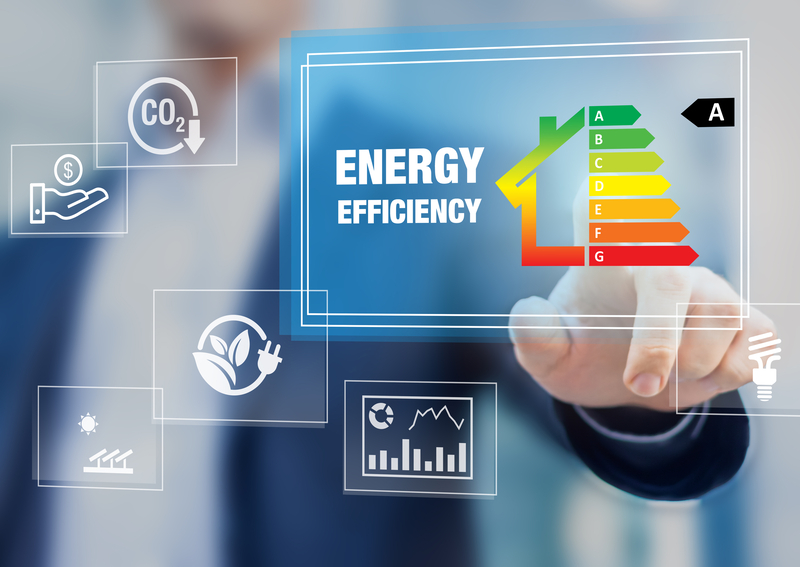Modern smart appliances combine cutting-edge technology with energy efficiency, reducing environmental impact while delivering superior performance. These intelligent devices adapt to usage patterns, optimize energy consumption, and provide significant cost savings over traditional appliances.
The Energy Efficiency Revolution
Smart Technology Integration
- AI-Powered Optimization: Learning algorithms reduce energy waste
- Sensor Networks: Real-time monitoring and adjustment
- Predictive Maintenance: Preventing efficiency-reducing issues
- Grid Integration: Smart grid compatibility for demand response
Energy-Efficient Refrigeration
Advanced Cooling Technologies
- Inverter Compressors: Variable-speed operation reduces energy use
- Dual Evaporators: Separate cooling systems for optimal efficiency
- Vacuum Insulation: Superior thermal performance
- Smart Defrosting: Only when needed, saving energy
Intelligent Features
- Door Monitoring: Alerts for extended openings
- Usage Patterns: Adapting cooling based on family habits
- Temperature Zones: Customized cooling for different areas
- Energy Tracking: Real-time consumption monitoring
"Energy-efficient appliances aren't just about saving money—they're about creating a sustainable future while enhancing our daily living experience."
Smart Washing Machines and Dryers
Water and Energy Conservation
- Load Sensing: Automatic water level adjustment
- High-Efficiency Motors: Direct-drive technology
- Cold Water Washing: Advanced detergents and cleaning cycles
- Steam Technology: Reduced water usage, better cleaning
Smart Drying Solutions
- Heat Pump Dryers: Up to 60% energy savings
- Moisture Sensors: Automatic cycle termination
- Air Circulation: Improved efficiency and fabric care
- Time-of-Use Optimization: Running during off-peak hours
Efficient Cooking Appliances
Induction Cooking Technology
- Electromagnetic Heating: Direct pan heating, minimal energy loss
- Precise Temperature Control: Immediate response to adjustments
- Safety Features: Cool-to-touch surfaces
- Energy Transfer: Up to 90% efficiency vs. 40-50% for gas
Smart Ovens and Microwaves
- Convection Technology: Faster, more even cooking
- Multi-Stage Cooking: Automated cooking programs
- Energy Recovery: Heat capture and reuse systems
- Sensor Cooking: Optimal time and temperature automatically
HVAC System Efficiency
Smart Thermostats and Controls
- Learning Algorithms: Adapting to household schedules
- Geofencing: Automatic adjustments based on occupancy
- Weather Integration: Anticipating temperature changes
- Zone Control: Room-by-room temperature management
Heat Pump Technology
- Variable Speed Compressors: Continuous efficiency optimization
- Cold Climate Performance: Effective down to -15°F
- Dual Fuel Systems: Automatic switching for optimal efficiency
- Smart Defrost: Only when necessary, preserving efficiency
Water Heating Innovation
Heat Pump Water Heaters
- Environmental Heat Capture: 3x more efficient than electric
- Hybrid Operation: Heat pump plus backup elements
- Smart Scheduling: Heating during off-peak hours
- Vacation Modes: Significant energy savings when away
Tankless and Smart Systems
- On-Demand Heating: Only heat water when needed
- Modulating Burners: Precise temperature control
- Recirculation Pumps: Reduced water waste
- Smart Controls: Remote monitoring and adjustment
Smart Dishwashers
Water and Energy Optimization
- Soil Sensors: Adjusting cycle length based on cleanliness
- Half-Load Options: Efficient cleaning for smaller loads
- Heat Recovery: Using rinse water heat for next cycle
- Eco Cycles: Extended time for reduced energy consumption
Energy Monitoring and Management
Smart Home Integration
- Whole-Home Monitoring: Track all appliance consumption
- Load Balancing: Preventing peak demand charges
- Time-of-Use Optimization: Running appliances during cheap rate periods
- Usage Analytics: Identifying inefficient appliances
Grid-Interactive Features
- Demand Response: Automatic load reduction during peak demand
- Grid Support: Providing services to electrical grid
- Renewable Integration: Optimal use of solar and wind power
- Energy Storage: Coordinating with home battery systems
Financial Benefits
Cost Savings Analysis
- Utility Bill Reduction: 20-50% savings on energy costs
- Rebates and Incentives: Government and utility programs
- Increased Home Value: Energy-efficient homes sell for more
- Extended Appliance Life: Efficient operation reduces wear
Environmental Impact
Sustainability Benefits
- Carbon Footprint Reduction: Significant greenhouse gas savings
- Resource Conservation: Reduced water and energy consumption
- Manufacturing Improvements: Eco-friendly production processes
- End-of-Life Recycling: Better material recovery programs
Choosing Energy-Efficient Appliances
Energy Star and Ratings
- Energy Star Certification: 15-30% more efficient than standard
- EnergyGuide Labels: Annual energy cost estimates
- Most Efficient Designation: Top performers in each category
- Smart Grid Ready: Future-proof technology
Purchase Considerations
- Total Cost of Ownership: Purchase price plus operating costs
- Payback Period: How long to recover higher initial cost
- Size Optimization: Right-sized for actual needs
- Smart Features: Connectivity and automation benefits
Installation and Optimization
Proper Installation
- Professional Installation: Ensuring optimal performance
- Electrical Requirements: Adequate power supply and circuits
- Ventilation Needs: Proper airflow for efficiency
- Smart Home Integration: Connecting to home automation systems
Maintenance for Efficiency
- Regular Cleaning: Filters, coils, and vents
- Software Updates: Latest efficiency improvements
- Professional Service: Annual tune-ups for major appliances
- Usage Optimization: Learning best practices
Future of Appliance Efficiency
Emerging Technologies
- AI Optimization: Machine learning for perfect efficiency
- IoT Integration: Coordinated appliance operation
- Advanced Materials: Better insulation and heat transfer
- Renewable Integration: Direct solar and wind power use
Industry Trends
- Stricter Standards: Continuously improving efficiency requirements
- Electrification: Moving away from fossil fuels
- Circular Economy: Design for recycling and reuse
- User Education: Apps and interfaces promoting efficient use
Making the Switch
Replacement Strategy
- Prioritize High-Use Appliances: Refrigerators, HVAC, water heaters
- End-of-Life Replacement: When repairs become uneconomical
- Coordinated Upgrades: Whole-home efficiency improvements
- Financing Options: Loans and lease programs for efficient appliances
Energy-efficient smart appliances represent a win-win opportunity: reducing environmental impact while saving money and improving convenience. As technology continues advancing and energy costs rise, these intelligent appliances will become increasingly essential for modern homes. The investment in efficiency today pays dividends through lower utility bills, reduced maintenance needs, and a smaller carbon footprint for years to come.
